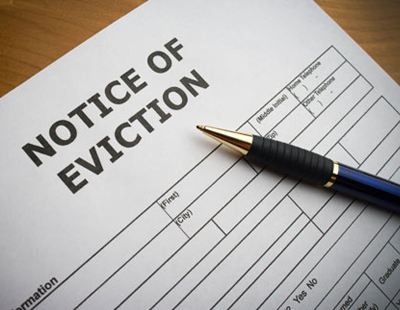No-fault eviction ban delayed indefinitely by court reforms
A ban on “no-fault” evictions in England will be indefinitely delayed until after the court system is reformed, the government has announced.
Labour accused the government of kicking the much-delayed proposals into the “long grass”, arguing legal reforms would “take years” to complete.
Ministers have been promising to end the right of landlords to evict tenants without needing a reason since 2019.
Housing Secretary Michael Gove said it was “vital” to update the courts first.
The Renters Reform Bill, promised in the Tories’ 2019 election manifesto, was debated in the Commons for the first time on Monday.
The proposed law, which will ban no-fault “Section 21” evictions, was first published in May.
Mr Gove has told Conservative MPs that the ban cannot be enacted before a series of improvements are made in the court system, which is used by some landlords to reclaim possession of their homes.
But Labour’s shadow housing secretary Angela Rayner accused the government of “betraying” renters with a “grubby deal” to avoid confrontation with Tory MPs opposed to the plan.
She added that the government was “caving in” to its backbenchers, and Rishi Sunak needed to “find a backbone and stand up to his party”.
Landlords can currently evict tenants who are not on fixed-term contracts without giving a reason, under housing legislation known as Section 21.
After receiving a Section 21 notice, tenants have two months before their landlord can apply for a court order to evict them.
Under the government’s bill, all tenancies would become “rolling” contracts with no fixed end date.
Landlords would be able to evict tenants in certain circumstances, including when they wished to sell the property or when they or a close family member wanted to move in, after six months.
It would also make it easier for landlords to repossess their properties in cases of anti-social behaviour or where the tenant repeatedly failed to pay rent.
However, the government has now confirmed that Section 21 will not be abolished until it decides “sufficient progress” has been made to the courts system.
This includes moving more of the process online and a better process to prioritise certain cases, including those involving anti-social behaviour.
Downing Street has not put a timescale on how long the promised reforms will take to achieve.
The announcement was made in response to a report from the Commons housing committee, which recommended it should set and meet a target for speeding up possession claims before the ban on Section 21 comes into force.
“I think we’ve said from the start the implementation will be phased and I don’t know exactly if there’s set timelines to that,” a No 10 spokesman said.









